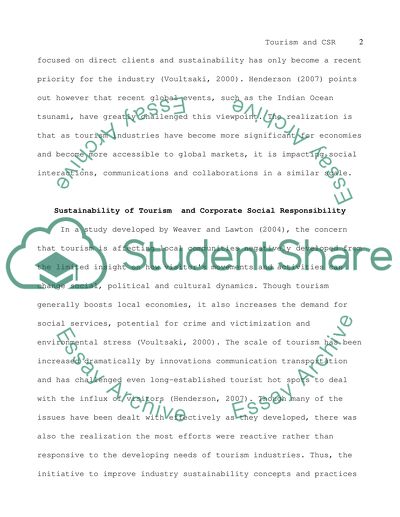Cite this document
(“Tourism and Corporate Social Responsibility Essay”, n.d.)
Tourism and Corporate Social Responsibility Essay. Retrieved from https://studentshare.org/miscellaneous/1528487-tourism-and-corporate-social-responsibility
Tourism and Corporate Social Responsibility Essay. Retrieved from https://studentshare.org/miscellaneous/1528487-tourism-and-corporate-social-responsibility
(Tourism and Corporate Social Responsibility Essay)
Tourism and Corporate Social Responsibility Essay. https://studentshare.org/miscellaneous/1528487-tourism-and-corporate-social-responsibility.
Tourism and Corporate Social Responsibility Essay. https://studentshare.org/miscellaneous/1528487-tourism-and-corporate-social-responsibility.
“Tourism and Corporate Social Responsibility Essay”, n.d. https://studentshare.org/miscellaneous/1528487-tourism-and-corporate-social-responsibility.


